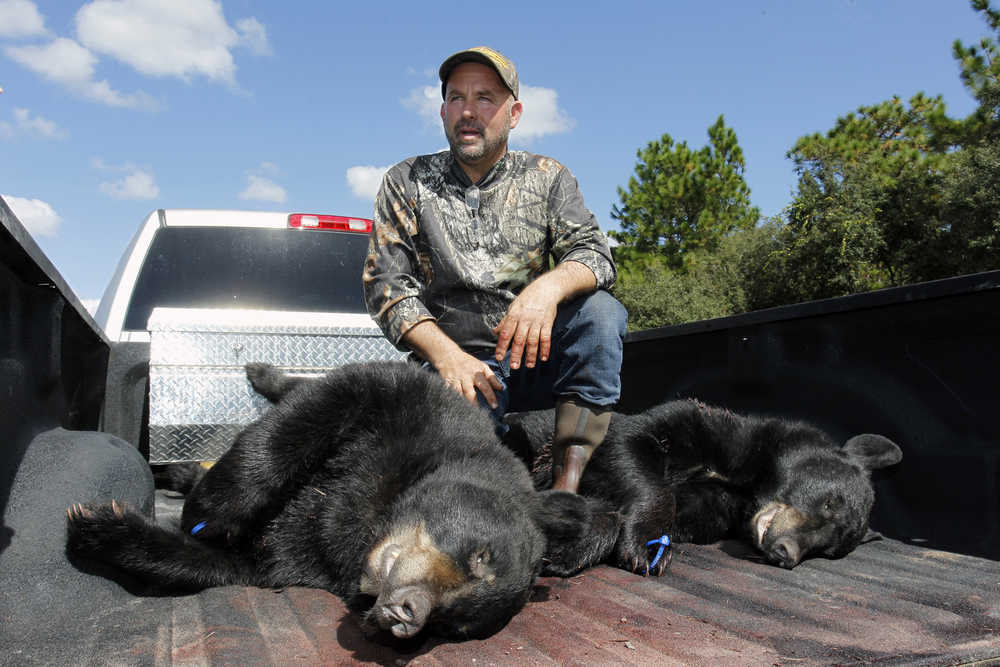TALLAHASSEE, Fla. — Hunters killed 298 black bears over the weekend during the first legal hunt in Florida in more than two decades, state wildlife officials said Monday.
The total was 22 below the state’s legal limit of 320, but officials said more could turn up in the next day or two.
Florida approved the hunt earlier this year, saying the state’s black bear population had grown too large and that attacks on people had become more common. As Florida has become the third-most populous state in the U.S., people have moved deeper into bear habitat at a time when the animals’ numbers have grown.
Part of the reason for the bear’s comeback was the state’s ban on hunting after black bear numbers plummeted into the hundreds, giving them legal protections meant to preserve imperiled species.
With animal lovers protesting the decision to open hunting season on bears, more than 3,500 people purchased bear hunting permits. Officials scheduled a week for the hunt, but by Sunday the high number of bears killed surprised hunting officials.
Two of the four hunting zones created by Florida fish and game officials were closed after the first day when limits in those areas were exceeded quickly. Officials said bear numbers in those areas were probably larger than they thought — estimates were based on 2002 data — and would survive the excess killing.
“This is core wildlife management, this is not spin,” said Thomas Eason, the director of habitat and species conservation division for the Florida Fish and Wildlife Conservation Commission.
Although state officials admitted they were “surprised” by the number of bears that were killed by hunters, they said Monday they anticipate holding bear hunts on an annual basis like 32 other states.
They also continued to defend the hunt, saying it was heavily regulated and that they remained in constant contact with the hunters who received permits via text message, social media and email.
Diane Eggeman, the FWC’s director of hunting and game management division, conceded that the protests surrounding the hunt did motivate state officials to shut it down even though they were still a little below the initial goal they set.
“The scrutiny and the controversy over this increased our willingness, our resolve to be a really conservative hunt,” she said.
A few citations were issued, Eggeman said. One to a hunter caught killing a cub — the rules made it illegal to kill any bear under 100 pounds. The others were issued to hunters who used bait, also a no-no.

